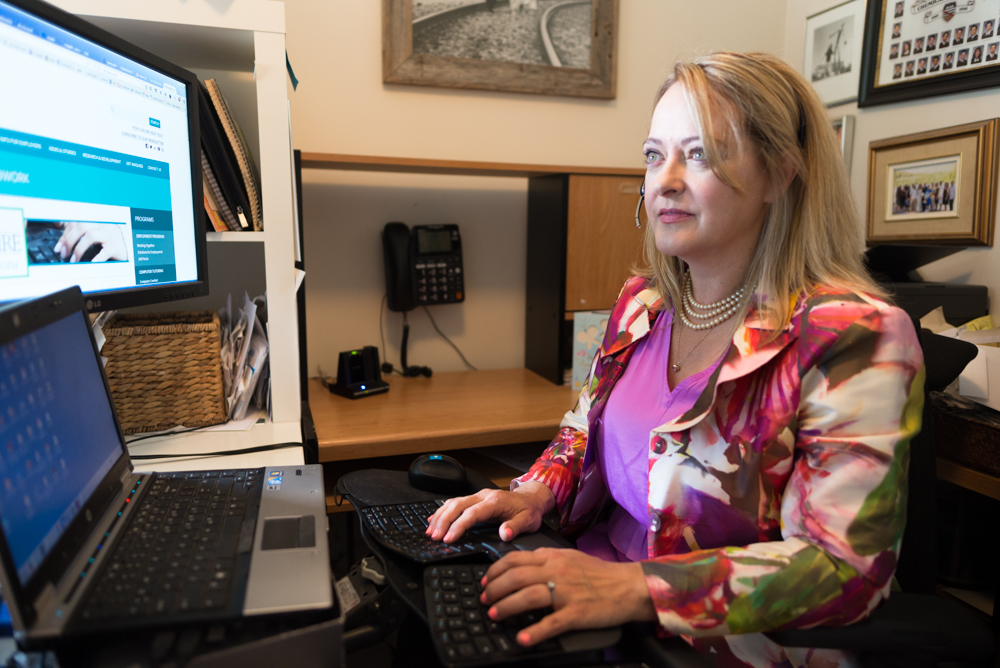“I’m on the computer eight to ten hours a day,” says Judi, an Executive Recruiter who helps companies find top candidates for job openings. “I do a lot of computer work because I’m constantly preparing profiles, and doing up resumes and proposals.”
 About two years ago Judi began feeling pain and numbness in her hands. It turned out to be a severe case of carpal tunnel syndrome (new window). “It was a condition that was making me wake up in the middle of the night,” Judi explains. “It was really impacting my ability to do this or any other office job.”
About two years ago Judi began feeling pain and numbness in her hands. It turned out to be a severe case of carpal tunnel syndrome (new window). “It was a condition that was making me wake up in the middle of the night,” Judi explains. “It was really impacting my ability to do this or any other office job.”
Having consulted a doctor, a chiropractor, a physiotherapist, an acupuncturist, and an occupational therapist, she was eventually referred to the Neil Squire Society‘s Technology@Work program.
The Technology@Work team assessed her situation and provided her with workstation upgrades that included an ergonomic keyboard, an ergonomic mouse, an ergonomic chair, and an adjustable arm. However, the most important piece of assistive technology she received was a headset that worked with Dragon Naturally Speaking, a speech-to-text program that allows her to avoid typing, and the repetitive strain that comes with it.
“They were amazing,” Judi says of the Neil Squire Society’s Technology@Work team. “They were really thorough, and knowledgeable, and very caring. They really try and make the most suitable changes that would positively impact [me].”
For Judi, Technology@Work was life-changing. It allowed her to continue working.
“I don’t have a health plan, so if I can’t work, it’s not like I can take short-term disability,” Judi explains. “It’s a big deal, [if I can’t work] I don’t pay my mortgage.”

